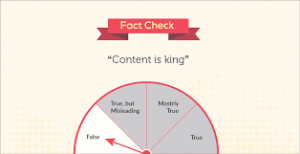What Is Topical Authority in SEO & How Does It Work ??

Topical Authority in SEO & How to Build It: A Complete Guide
Topical authority, in the context of SEO, refers to a website’s perceived expertise in a specific niche or topic. Search engines like Google aim to provide users with the most relevant and comprehensive information for their queries. Websites with strong topical authority are often prioritized in search results due to their depth and breadth of information on a specific topic. Here’s a deep dive into what it means and how to build it.
Also Read:- ChatGPT SEO Strategy: How I Increased SEO Traffic in 22 Mins
1. Understanding Topical Authority:
- Depth Over Breadth: Topical authority is about going deep into a specific subject rather than having a shallow understanding of many subjects.
- User Trust: Websites with topical authority are often seen as trustworthy and reliable sources of information by users.
- Search Engine Recognition: Search engines aim to recognize these authority sites and rank them higher in SERPs (Search Engine Result Pages).
2. Benefits of Topical Authority:
- Higher Rankings: Enhanced visibility in search results for topic-related queries.
- Increased Traffic: Attracts a more targeted audience interested in your niche.
- Greater Trust: Builds credibility with your audience, making them more likely to engage or convert.
3. How to Build Topical Authority:
a. Comprehensive Content:
- Create in-depth content that covers all facets of your topic. The aim is to make your website a one-stop resource.
b. Regular Updates:
- The digital landscape is ever-evolving. Ensure your content remains current and updated.
c. Internal Linking:
- Link related articles and content together. This not only helps in distributing page authority but also guides the reader to more in-depth resources.
d. Quality Over Quantity:
- Instead of churning out numerous mediocre articles, focus on producing fewer, high-quality pieces.
e. Engage with Influencers:
- Collaborate with industry experts or influencers to co-create content. Their endorsement can elevate your topical authority.
f. User Experience (UX):
- Ensure your website is user-friendly. This includes fast load times, mobile optimization, and intuitive navigation.
g. Engage on Social Media:
- Share and discuss your content on relevant social media platforms, forums, or online communities.
h. Avoid Duplicate Content:
- Ensure all content is unique to avoid being penalized by search engines.
i. Seek Backlinks:
- Obtain backlinks from reputable websites in your niche. This not only boosts your site’s authority but also signals to search engines about your topical relevance.
j. Invest in Long-form Content:
- Detailed guides, whitepapers, and long articles can showcase your in-depth knowledge.
k. Address User Queries:
- Utilize tools like “People Also Ask” in Google or platforms like Quora to find common questions in your niche and address them in your content.
4. Monitoring Your Topical Authority:
- SEO Tools: Use tools like Ahrefs, SEMrush, or Moz to monitor your keyword rankings and domain authority.
- Feedback and Comments: Engage with your audience’s feedback on your content. Addressing criticisms and updating content can enhance authority.
- Analyze Traffic and Engagement: Use analytics tools to monitor user engagement, bounce rates, and session durations. Higher engagement often correlates with higher topical authority.
Conclusion:
Building topical authority is a long-term investment but can yield significant dividends in terms of SEO rankings, traffic, and conversions. By focusing on creating value for your audience and becoming the go-to resource in your niche, you can establish and grow your topical authority over time.










